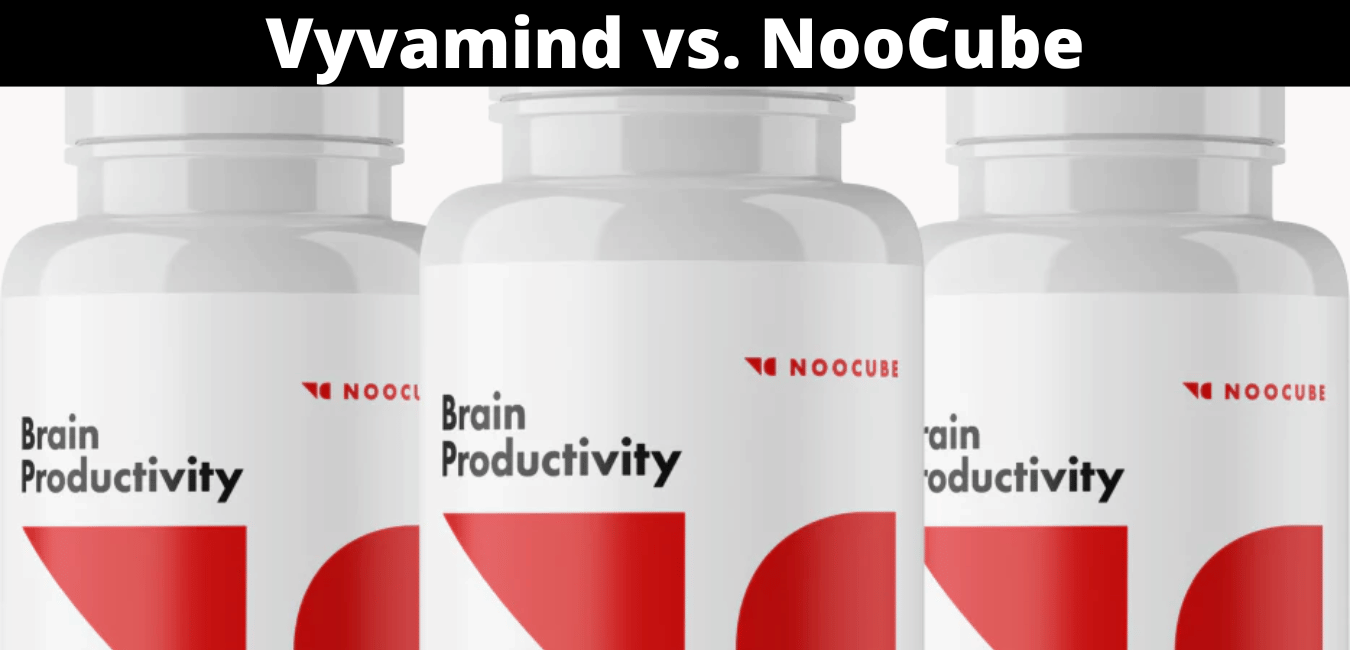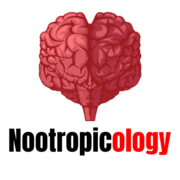Vyvamind vs. NooCube: How Do They Compare?
NooCube and Vyvamind are two of the most popular nootropic blends available today. Both of these supplements are designed to boost cognitive function and enhance overall brain health.
But how do they compare? What are the differences between these two nootropics, and what makes one better than the other?
In this article, I'll take a closer look at both NooCube and Vyvamind to help you make an informed decision.
So without further ado, let's dive in!
About Vyvamind and NooCube
Vyvamind and NooCube are both nootropic blends. That means they have a combination of ingredients designed to boost cognitive function, enhance memory and focus, and improve overall brain health.
Vyvamind and NooCube contain natural ingredients such as amino acids, vitamins, minerals, and herbal extracts. However, there are some key differences between the two supplements. Let's look at each nootropic blend in more detail below.
What is Vyvamind?
Vyvamind (NSV-313) contains 6 all-natural and clinically proven nootropic ingredients that work synergistically. This means that each ingredient is carefully selected and combined to maximize the effects of cognitive enhancement.
The ingredients found in Vyvamind include:
- Vitamin B6 (2.5 mg)
- Vitamin B12 (50 mcg)
- L-Tyrosine (300 mg)
- Citicoline (CDP Choline) - 200 mg
- L-Theanine (150 mg)
- Caffeine Anhydrous (75 mg)
CDP Choline is an acetylcholine (ACh) precursor. ACh is a neurotransmitter in the brain that helps with learning, memory formation, and mental clarity. It's also been shown to be effective in patients with Alzheimer's and other neurological diseases.[1]
L-Tyrosine is an amino acid that increases alertness and vigilance. It promotes the production of dopamine, norepinephrine, and epinephrine in the body - all of which help improve overall cognitive performance.[2]
L-Theanine is an amino acid in green tea and improves relaxation without causing drowsiness. It has been shown to reduce stress levels, increase alertness, and enhance cognitive performance. When combined or stacked with Caffeine Anhydrous it boosts alertness and mental clarity without the jitters or crashes.[3]
When all of these nootropic ingredients are combined into one blend, they create a powerful and effective supplement that can help with cognitive performance, mental clarity, and alertness.
What is NooCube?
NooCube is a nootropic blend that contains 13 natural and clinically proven ingredients that also work synergistically to increase mental performance, focus, and alertness.
The NooCube ingredients are:
- Lutemax® 2020
- Bacopa Monnieri 12:1 (20% bacosides) 250 mg
- Huperzia Serrata (0.5% huperzine-a) 20 mg
- Pterostilbene 140 mcg
- Resveratrol 99% 14.3 mg
- L-Theanine 100 mg
- L-Tyrosine 250 mg
- Alpha GPC (Glycerylphosphorylcholine) 50 mg
- Oat Straw Extract 10:1
- Cat's Claw 4:1
- Vitamin B1 1.1 mg
- Vitamin B7 50 mcg
- Vitamin B12 2.5 mcg
Unlike Vyvamind, NooCube contains Alpha GPC instead of CDP Choline. Alpha GPC is also an acetylcholine precursor but has been found to boost acetylcholine levels in the brain more effectively and faster than CDP Choline.
A multicentre trial to evaluate the efficacy and tolerability of alpha-glycerylphosphorylcholine (Alpha GPC) versus cytidine diphosphocholine (CDP Choline) in patients with vascular dementia found that Alpha GPC possessed a statistically higher efficacy and an overall more satisfactory activity assessed by both patients and investigators compared with CDP.[4]
Another nootropic ingredient in NooCube that isn't in Vyvamind is Resveratrol. Resveratrol is a polyphenol found in red wine and blueberries. It has been primarily studied for its antioxidant properties and improves memory and other cognitive functions.
A 24-month randomized, double-blind, placebo-controlled, crossover study looked at the Long-term effects of resveratrol on cognition, cerebrovascular function, and cardio-metabolic markers in postmenopausal women.[5]
According to Thaung Zaw, Jay Jay et al., Resveratrol supplementation led to a remarkable 33% enhancement in cognitive performance for adults age 65 and older compared to placebo.
Benefits of Vyvamind vs. NooCube


The benefits of Vyvamind versus NooCube depend on the user's needs. For those looking for an immediate boost in alertness and mental clarity, Vyvamind is a great choice as it contains Caffeine Anhydrous combined with L-Theanine.
However, for those interested in more long-term improvements to cognition, NooCube is the clear winner, as it contains Alpha GPC and Resveratrol, which have been clinically proven to improve memory and cognitive performance.
Let's look at the specific benefits of each nootropic blend below.
Vyvamind Benefits
Vyvamind is the ideal nootropic for anyone searching for a natural and reliable way to improve cognitive performance.
It is an excellent choice for individuals with ADHD who have difficulty concentrating, paying attention, or staying alert during long working hours or study sessions.
With its blend of clinically researched nootropic ingredients, Vyvamind can not only sharpen cognitive performance and augment memory formation and recall, but also decrease stress levels while naturally elevating moods. Relaxation is another added benefit this product gives you!
Here is a quick overview of the Vyvamind benefits you can expect:
- Unparalleled focus and clarity
- Increased motivation, cognition, and drive
- Stress and anxiety reduction
- A rapid onset brainpower boost
- Advanced burnout protection (no fatigue)
NooCube Benefits
Formulated by some of Europe's most esteemed neuroscientists, NooCube offers an innovative approach to optimizing brainpower. It contains a strategic combination of powerful nootropic ingredients that guarantee tangible results in the blink of an eye.
The benefits you'll experience when taking NooCube include:
- Enhanced memory formation and recall
- Greater mental clarity and focus
- Elevated alertness and energy levels
- Improved mood and motivation
- Heightened cognitive performance
- No jitters or crashes from stimulants like caffeine
Side Effects of Vyvamind vs. NooCube
Although both Vyvamind and NooCube are natural nootropic supplements, there are potential side effects associated with each product.
Let's look at the possible side effects of each nootropic blend below.
Vyvamind Side Effects
When taking Vyvamind, some people may experience mild nervousness due to the caffeine content (this is usually resolved by reducing dosage or discontinuing). In addition, the L-Theanine content can cause drowsiness in high doses.
That being said, Vyvamind is generally well-tolerated and has minimal side effects. If you want to be safe, I recommend starting out with a low dosage and increasing gradually.
NooCube Side Effects
NooCube is also usually well-tolerated. However, the Alpha GPC content can cause headaches and skin rash in some individuals.
Resveratrol may also interact with certain medications that slow blood clotting, so it's important to speak with your doctor before taking NooCube.
My Opinion on NooCube vs. Vyvamind
So what do I personally think about NooCube and Vyvamind?
Well, my opinion is that if you're looking for an immediate boost in alertness and mental clarity, then Vyvamind is the clear winner. Especially if you have ADHD, it contains clinically researched ingredients to help with concentration, focus, motivation, and drive.
On the other hand, if you're looking for a more long-term solution to optimize brain health and performance, then NooCube is an excellent choice. NooCube can take some time to work (usually a couple of weeks), but the cognitive-enhancing benefits can be quite impressive.
It contains powerful nootropic ingredients proven to improve memory formation and recall while providing a jitter-free energy boost without the crash. This makes it a great choice for people who are sensitive to Caffeine and hate the inevitable come-down when it wears off.
So, if you need an immediate boost to your mental performance, Vyvamind is the superior product. But if you're looking for a long-term solution that will help improve memory and cognition, then NooCube is your best bet.
Which is Better: Vyvamind or NooCube?
So the question remains - which is better: Vyvamind or NooCube? The answer really depends on your needs, goals, and budget.
If you're looking for a quick boost to get through the day, then Vyvamind is an excellent choice. But if you want something that will help improve cognitive performance over time, then NooCube is the better option.
NooCube contains more ingredients (13) than Vyvamind (6), and it's also cheaper. This means you'll get more bang for your buck with NooCube, making it the better value overall.
Here's the price breakdown of Vyvamind:
- 1-Month Supply of Vyvamind (60 capsules) - $74.99 (You save $5.01)
- 2-Months Supply of Vyvamind (120 capsules) - $139.98 (You save $20.02)
- 3-Months Supply of Vyvamind (180 capsules) - $207 (You save $33)
Here's the price breakdown of NooCube:
- 1-Month Supply of NooCube (60 capsules) - $59.99 (You save $15)
- 2-Months Supply of NooCube (180 capsules) - $119.99 (You save $104.98)
- 3-Months Supply of NooCube (300 capsules) - $179.99 (You save $194.96)
However, I personally recommend Vyvamind for the fact that it kicks in faster and you'll get immediate cognitive benefits.
If you're curious to know more about how Vyvamind works, you can find their official website below:
- Caamaño, J et al. “Effects of CDP-choline on cognition and cerebral hemodynamics in patients with Alzheimer's disease.” Methods and findings in experimental and clinical pharmacology vol. 16,3 (1994): 211-8. ↑
- Jongkees, Bryant J et al. “Effect of tyrosine supplementation on clinical and healthy populations under stress or cognitive demands--A review.” Journal of psychiatric research vol. 70 (2015): 50-7. doi:10.1016/j.jpsychires.2015.08.014 ↑
- Owen, Gail N et al. “The combined effects of L-theanine and caffeine on cognitive performance and mood.” Nutritional neuroscience vol. 11,4 (2008): 193-8. doi:10.1179/147683008X301513 ↑
- Di Perri, R et al. “A multicentre trial to evaluate the efficacy and tolerability of alpha-glycerylphosphorylcholine versus cytosine diphosphocholine in patients with vascular dementia.” The Journal of international medical research vol. 19,4 (1991): 330-41. doi:10.1177/030006059101900406 ↑
- Thaung Zaw, Jay Jay et al. “Long-term effects of resveratrol on cognition, cerebrovascular function and cardio-metabolic markers in postmenopausal women: A 24-month randomised, double-blind, placebo-controlled, crossover study.” Clinical nutrition (Edinburgh, Scotland) vol. 40,3 (2021): 820-829. doi:10.1016/j.clnu.2020.08.025 ↑
